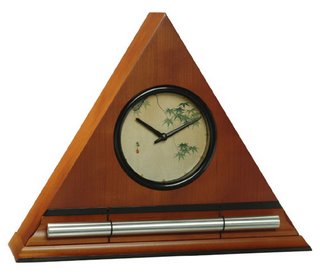
tips for staying healthy this holiday season
As the chill of winter arrives, so does the prospect of congestion and coughing, sore throats and sniffles, and other less-than-desirable symptoms.
But you might have noticed that colds, flus, and other seasonal blights seem to hit some people again and again, while others coast through to spring unscathed. Is this punishment random, like a tornado, or is there a method to the cold-and-flu madness?
There is indeed a method. While we can all help prevent viral and bacterial infections by washing hands regularly and avoiding germ-laden surfaces, it’s not just the bugs we encounter that determine how healthy we are. Our well-being also depends on how prepared our bodies are to fight them.
An entire field of research called psychoneuroimmunology has bloomed in recent years. It aims to uncover the links between the brain, behavior, and the immune system. One of its primary targets is the universal phenomenon known as stress.
We’ve all experienced the nasty cold that comes after a deadline, and scientific evidence has borne out this pattern, with clinical studies showing that psychological stress can weaken defenses and slow recovery from illnesses small and large. A recent study from the University of California, Los Angeles, in fact, found that the effects of stress play out at the cellular level: Hormones cued by emotional stress make immune cells age faster.
What is stress? “It’s our body’s response to something that taxes or exceeds our resources, whether from external pressures or our own internal worries,” says Frances Cohen, a psychologist at the University of California, San Francisco. What feels stressful depends on a person’s reaction to a given circumstance. “For some people, getting divorced is a positive step,” she says. “But for others, it’s devastating.” When we perceive something as harmful, our brain triggers hormones such as cortisol, which can affect the immune system. “You can trace it from the brain through the body,” Cohen says.
After stress hormones pour into the bloodstream, “the body tries to correct itself, to bring itself back into homeostasis,” she adds. So if the stress is brief, the hormones dissipate, and the body returns to normal. In one study, her group found that people who lost their jobs had lower levels of an important class of immune cell. However, she says, “we saw a recovery of immune levels, a bouncing back, in people who got a new job.”

reduce stress
Stress that lasts over a long period of time proves far more damaging to our bodies than short-term stress. A study published earlier this year, for instance, found that consistently high levels of perceived stress could reduce women’s ability to fight an infection from human papilloma virus (HPV), which can cause cervical cancer; no such effect occurred with one-time stressful events such as job loss.
And in a preliminary study published in August, researchers studied people caring for family members with chronic illnesses (a long-term stressor); compared with a control group, the caregivers’ white blood cells were less responsive to cortisol and more responsive to a pro-inflammatory compound — leaving their bodies in a state of chronic inflammation.
Exercise and Sleep
Immunity isn’t all in your head, of course; day-to-day physical habits matter a great deal. Exercise, sleep, and nutrition in particular have strong links to immunity — and, not coincidentally, to our mental well-being.
Start with fitness: Those who exercise regularly, says Monika Fleshner, Ph.D., a professor of integrative physiology at the University of Colorado at Boulder, acquire a resiliency that makes them less susceptible to health problems. “This is especially important when we’re stressed and as we age,” says Fleshner.
Interestingly, more exercise isn’t necessarily better. “While too little exercise is bad for the immune system, too much is just as bad,” she notes. Athletes who exercise strenuously may have higher rates of respiratory infections. Just the right amount of movement helps maintain a healthy weight, which in turn plays a role in how well we battle colds and flus: People who are obese have diminished immune responses and more severe infections.
The fact that many Americans don’t get enough sleep and rest spells bad news for our immune systems, too, says Motivala, increasing the risk of conditions ranging from frequent colds to diabetes. “A normal sleep cycle is vitally important for immune function,” he explains, since immune cells circulate throughout the body according to cycles of sleep and wakefulness. Their levels in the blood peak around midnight, then gradually return to lymph nodes as we sleep. A lack of sleep interrupts this process, lowering levels of “natural killer” cells, important first-line defenders against infections.

prioritize shut-eye
Prioritize Shut-Eye
Evidence shows that sleep has wide-ranging effects on immunity. Most of us need about eight hours a night, but quality matters just as much. “Keep track of how you feel in the morning,” says Sarosh Motivala. A little grogginess is fine, but you shouldn’t be dragging. “If you’re waking up tired, it doesn’t matter if you had eight hours or five hours, something is not right,” he says. Sleep problems can arise from a number of sources, including stress, a poor diet, or a sedentary lifestyle, so talk to your doctor or alternative health therapist to identify the cause in each case. Be sure to treat yourself gently in the morning by waking progressively over a 10 minutes period of time with The Zen Alarm Clock with Chime.
One of the ultimate Zen like experiences is waking-up from a great slumber refreshed and energized. Your mind and body are harmoniously one, both alert and focused. Having a refreshed mind and body are two keys to a natural and Zen lifestyle. Waking up in the morning should not be a loud and abrupt awakening, but rather it should be a peaceful positive experience. The right natural alarm clock can transition your deep and tranquil sleep into a serene start to consciousness. Imagine a long-resonating Tibetan bell-like chime waking you up to a beautiful morning experience.
The right alarm clock can be the most beneficial investment for you. With our Now & Zen natural alarm clock you are awakened more gradually and thus more naturally. Now & Zen is focused on creating a naturalistic lifestyle, and our clocks are an example of our philosophy.
adapted from Body + Soul, November 2008

chime alarm clocks and natural sounding timers for a gentle wake up
Now & Zen – The Soothing Chime Alarm Clock Store
1638 Pearl Street
Boulder, CO 80302
(800) 779-6383
Posted in sleep, Sleep Habits, Well-being